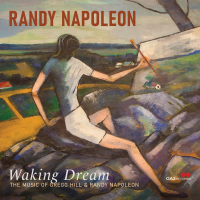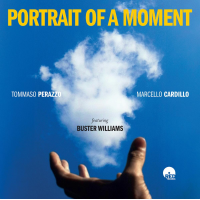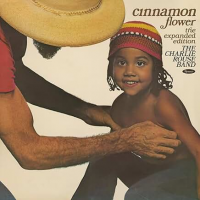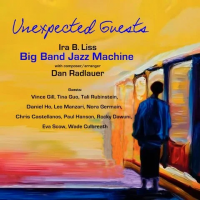Home » Jazz Articles » Extended Analysis » Nathan Davis: Nathan Davis: The Best of Nathan Davis '65-'76
Nathan Davis: Nathan Davis: The Best of Nathan Davis '65-'76
 Nathan Davis
Nathan Davis The Best of Nathan Davis '65-'76
Jazzman
2009
The concept of a "Best Of" album seems like it should be set aside for those musicians who have entered the popular consciousness to the degree that a sampler disc would be an easy sell. In jazz, canonical artists like trumpeter 
Miles Davis
trumpet1926 - 1991

John Coltrane
saxophone1926 - 1967

Duke Ellington
piano1899 - 1974

Thelonious Monk
piano1917 - 1982
The UK's Jazzman label assembled this collection of reedman-composer Nathan Davis' music from an entirely different angle. Davis' music isn't well-known despite a career that started in earnest in the early 1960s, and his dates as a leader have been scattered over myriad labels in very small print runs—only a few have been reissued and originals are out of the range for even deep-pocketed collectors. The Best of Nathan Davis 1965-1976 gives a strong sampling of cuts from ten records Davis led in the years after he first hit the European scene until the 1970s, when his status as a full professor at the University of Pittsburgh precluded constant recording.
Backtracking a little, Davis was born in 1937 in Kansas City, Kansas and attended the University of Kansas in Lawrence before shipping off to military service in Germany in 1960. After being discharged, he stayed on in Berlin and subsequently Paris, where he befriended and formed a co-operative band with reed player 
Eric Dolphy
woodwinds
1928 - 1964
Woody Shaw
trumpet
1944 - 1989
Kenny Clarke
drums
1914 - 1985
Art Taylor
drums
1929 - 1995
Francy Boland
piano
1929 - 2005
Rene Urtreger
piano
b.1934
Mal Waldron
piano
1925 - 2002
Benny Bailey
trumpet
1925 - 2005
As Dolphy was helpful in getting Davis significant work upon relocating to Europe, so Davis returned the favor to Shaw and fellow Jayhawker, trumpeter 
Carmell Jones
trumpet
1936 - 1996
Jimmy Woode
bass
1926 - 2005
Woody Shaw's "Zoltan," excised from Davis' first LP as a leader, Happy Girl (Saba), finds the pair in company with Woode, drummer Billy Brooks and 
Larry Young
organ, Hammond B3
1940 - 1978
The latter half of the 1960s found Davis leading a pair of quartet dates for the Polydor and Edici labels, both with Art Taylor in the drums chair and either 
Hampton Hawes
piano
1928 - 1977
Jimmy Garrison
bass, acoustic
1934 - 1976
Davis formed his own label, Tomorrow International, in Pittsburgh in the mid-1970s after an unfortunate brush in the early 1970s with local rock label Segue virtually buried his excellent Makatuka LP (his first upon returning to the states). The records on Tomorrow International, Suite for Dr. Martin Luther King, Jr. and If, accentuate a funkier approach to writing and one which resulted in Davis' popularity among the club-jazz and deejay set. "Atlanta Walk," from the former session, seems crazily sped-up, especially considering the massive brass writing that opens the tune. Davis and trombonist Nelson Harrison take clipped solos over a rumbling and top-heavy beat, a two-trumpet volley leading into pianist Frank Cunimundo's brief, flowery statement. The suite was commissioned by Gulf Oil, oddly, and its performance resulted in death threats from an African-American group in resistance to the oil company. Despite external pressures, the recording of the suite came off excellently, and also included biographical narration from former Pittsburgh University vice provost, Donald Henderson.
If is small-group electric funk, a slightly saccharine shock in comparison to the extended modal backdrops of earlier sessions; nevertheless, Davis' staccato and vocal flute is in full display at the outset of the slinky "New Orleans." A tight backbeat melded with conga, rubbery electric bass and George Caldwell's florid, gospelized piano is an excellent setting for Davis, having one foot in jazz tradition and the other in something decidedly "else." Davis, after all, has always been a searcher and while his music maintains clear roots in post-bop, his playing and writing encompass North African and Indian music, the avant-garde and funk. For a career and life that spans so much music and a vast geography, it's hard to imagine one compilation doing Nathan Davis justice. Jazzman Records has done him proud.
Tracks: B's Blues; Sconsolato; Theme from Zoltan; A5; Mandingo's Pad; Up Jumped Spring; Uschimaus; Cecen Kizi; Atlanta Walk; Makatuka; New Orleans; Tragic Magic; A5 (live).
Personnel: Nathan Davis: tenor and soprano saxophones, flute; Carmell Jones: trumpet (1); Woody Shaw: trumpet (2, 3); Lew Soloff, Chuck Austin, Clyde Bellin: trumpets (9); Daniel Poupard: trombone (9); Nelson Harrison: trombone (9, 10); Jean-Louis Chautemps: baritone saxophone (2); Lee Gross: baritone saxophone (9); Eric Johnson: guitar (9); Francy Boland: piano (1); Rene Urtreger: piano (2); Larry Young: piano (3); Hampton Hawes: piano (4, 5); Mal Waldron: piano (6, 7); Frank Cunimundo: piano (9); George Caldwell: piano (11, 12); Don Depaotis: electric piano (10); Jimmy Woode: bass (1-3, 6, 7); Jimmy Garrison: bass (4, 5); Mike Taylor: bass (9, 10); Virgin Walters: electric bass (10); Abraham Laboriel: electric bass (11); Kenny Clarke: drums (1, 2); Billy Brooks: drums (3); Art Taylor: drums (4-7); Joe Harris: drums (9); Roger Humphries: drums (10); Dave Palamar: drums (11, 12); Willie Amoaku: percussion (11, 12); Musicians of the Belgrade RTV Big Band (13); Akagunduz Kutbay, Emin Findikoglu: unknown instruments (along with other unknown musicians, 8).
">Personnel
Nathan Davis
saxophoneAlbum information
Title: Nathan Davis: The Best of Nathan Davis '65-'76 | Year Released: 2009 | Record Label: Unknown label
Tags
Comments
PREVIOUS / NEXT
Support All About Jazz
 All About Jazz has been a pillar of jazz since 1995, championing it as an art form and, more importantly, supporting the musicians who make it. Our enduring commitment has made "AAJ" one of the most culturally important websites of its kind, read by hundreds of thousands of fans, musicians and industry figures every month.
All About Jazz has been a pillar of jazz since 1995, championing it as an art form and, more importantly, supporting the musicians who make it. Our enduring commitment has made "AAJ" one of the most culturally important websites of its kind, read by hundreds of thousands of fans, musicians and industry figures every month.



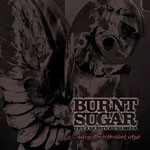


 Buy Now
Buy Now



